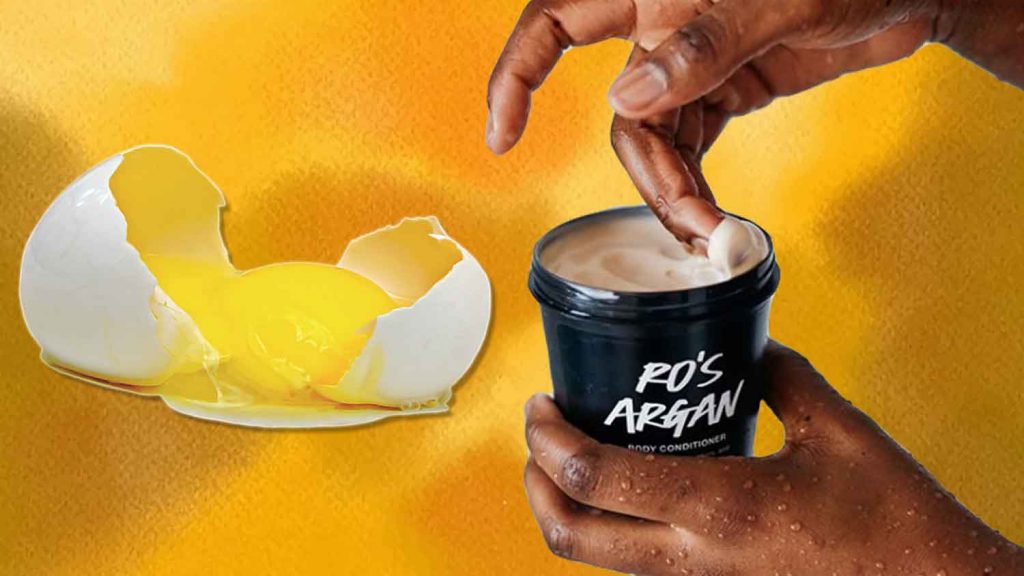International cosmetics brand Lush just removed eggs from all of its beauty products.
Egg is no joke – or “no yolk” – as Lush says. More than ever, consumers are choosing to go without the animal product due to its impact on the planet, human health, and the animals involved in the industry.
Listening to shifting consumer preferences, Lush has scrapped egg from the ingredients lists of six of its “fan favorite products,” making its entire range egg-free. In its place, “innovative animal-free alternatives” are taking center stage.
“All of our products are formulated to have specific benefits, so we knew that when searching for alternatives to eggs, we’d need to find ingredients that would do the job just as well,” the brand writes online.
https://www.instagram.com/p/BvCj7O5F66D/
Five new ingredients are being used to replace egg. Aquafaba, the viscous liquid found in cans of chickpeas, is used in all six of the reformulated products. Often used in baking, the plant-based ingredient adds strength to hair and helps balance “troubled” skin, Lush said.
Silken tofu is also used to swap out eggs. A softer, smoother form of tofu, the protein-packed ingredient brings a rich consistency to creams and helps to balance the skin.
The company is also using soy-based yogurt. Protein, B vitamins, and rich moisturizing properties are benefits of the ingredient, which is being used in its face masks.
Hydrolyzed wheat protein, a protein that can access cuticles of the hair shaft, and bentonite powder, a rich clay-turned-gel that helps masks spread evenly over skin, will also be used.
Lush sent the updated products along with the original formulas to some “human volunteers,” since the company does not engage in animal testing. Both were unlabeled and the volunteers couldn’t tell the difference. Many preferred the new versions, Lush said.
Lush’s line, though all-vegetarian, is not vegan yet; it still uses honey and lanolin (wool wax) in some of its recipes.
More consumers are choosing to buy cruelty-free, animal-free products; since 2013, there has been a 175 percent increase in vegan cosmetics. This year, British pharmacy chain Superdrug reported a 750 percent increase in the sales of vegan cosmetics.


